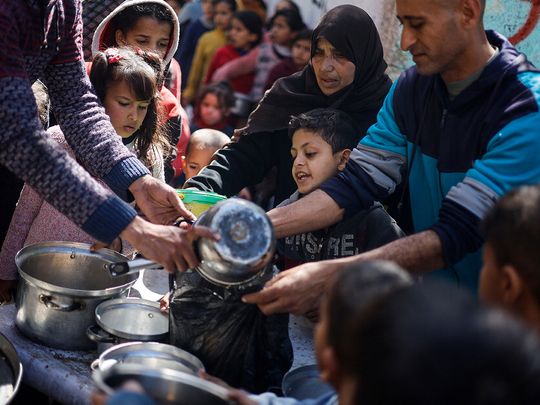
‘All we can do for Gaza is just offer our Du’a.” This is an oft-repeated statement by enraged Arabs and Muslims who feel helpless before the Israeli genocide in Gaza.
But is it true that only invocations and supplications are possible, as tens of thousands of Palestinians in the Gaza Strip are being killed and wounded by the Israeli war machine?
No. There is much that can be done and, in fact, many people around the world are already doing it.
The dichotomy, however, arises from the fact that many people feel unable to affect change regarding the horrific fate of Gaza, whether on a small or a large scale, thus the widespread notion that “all we can do is offer Du’a”.
I have visited South Africa several times in the past. Each time, I learned more than I could have possibly imparted. I learned that people’s power is far more effective, in the long run, than the opposing powers of state violence.
I also learned that no worldly law, especially those that aim at imposing racist apartheid, can possibly stand against our innate rejection of social inequality and other evils. Finally, I also learned that when people rise, nothing can stand in their way.
Warning of terrible things to come
The latter maxim is as true in the case of South Africa during the anti-apartheid struggle, as it is now in Palestine, particularly in Gaza. Of that, famed Tunisian poet, Abu Al-Qasim al-Shabi wrote a hundred years ago.
“Should the people one day truly aspire to life / then fate must needs respond / the night must needs shine forth / and the shackles must needs break,” he wrote, just before he died at the very young age of 25.
His powerful words also included a caveat, an ominous warning of terrible things to come: “Those who are not embraced by life’s yearning / shall evaporate in her air and vanish.”
South Africa did not make the latter choice, nor did Gaza. And every attempt at crushing these great peoples continued to fail. They remained, persisted, healed their wounds and fought back.
I always believed that South Africa will play a central role in international solidarity with Palestine. But, frankly, I had not expected that the African nation would become so intrinsic, even unparalleled, to holding Israel accountable for its crimes in Palestine to this extent.
Pretoria’s push to hold Israel and its war criminals to account at the International Court of Justice (ICJ) and International Criminal Court (ICC) continues unabated.
It was not the sheer military, economic or political power or prowess that made South Africa a factor in the Palestinian fight for justice. It was the sheer will of a nation and, subsequently, a government to translate its desire to achieve a more equitable, just and law-governed international system into meaningful action.
South Africa could have simply resorted to self-pity, highlighting its supposed insignificance in the face of more powerful US-western governments that continue to support Israel, feeding it with all the necessary weapons to sustain its genocide.
It, too, could have resorted to prayers, invocations and supplications as the “only thing that can be done”. It did not. To the contrary, it used its diplomatic leverage and moral authority to articulate one of the most powerful cases in favor of Palestinian freedom and against Israeli brutality ever argued before an international legal institution.
It is understandable that many may feel helpless, especially when one attempts to fathom the enormity of the crime underway in Gaza. Israel might have not used weapons of mass destruction in the Strip, but it has certainly applied all of its western-supplied weapons to inflict mass destruction, nonetheless.
But if Gaza has not given up, why should we? Even giving up is a privilege. Gaza does not have that privilege nor should we grant it to ourselves. Gaza is fighting for its very survival and we, too, must fight for the same end.
Make a Du’a for Gaza. Let it be your first act as you undertake your quest for a just world. And make another Du’a for Gaza, to beseech God to reward your selfless and well-intentioned deeds. And, if you are besieged by desperation, still make a Du’a, so that you may discover the power to make a difference, which has always been within your grasp.
Dr Ramzy Baroud is a journalist, author and editor. He is the author of six books.












